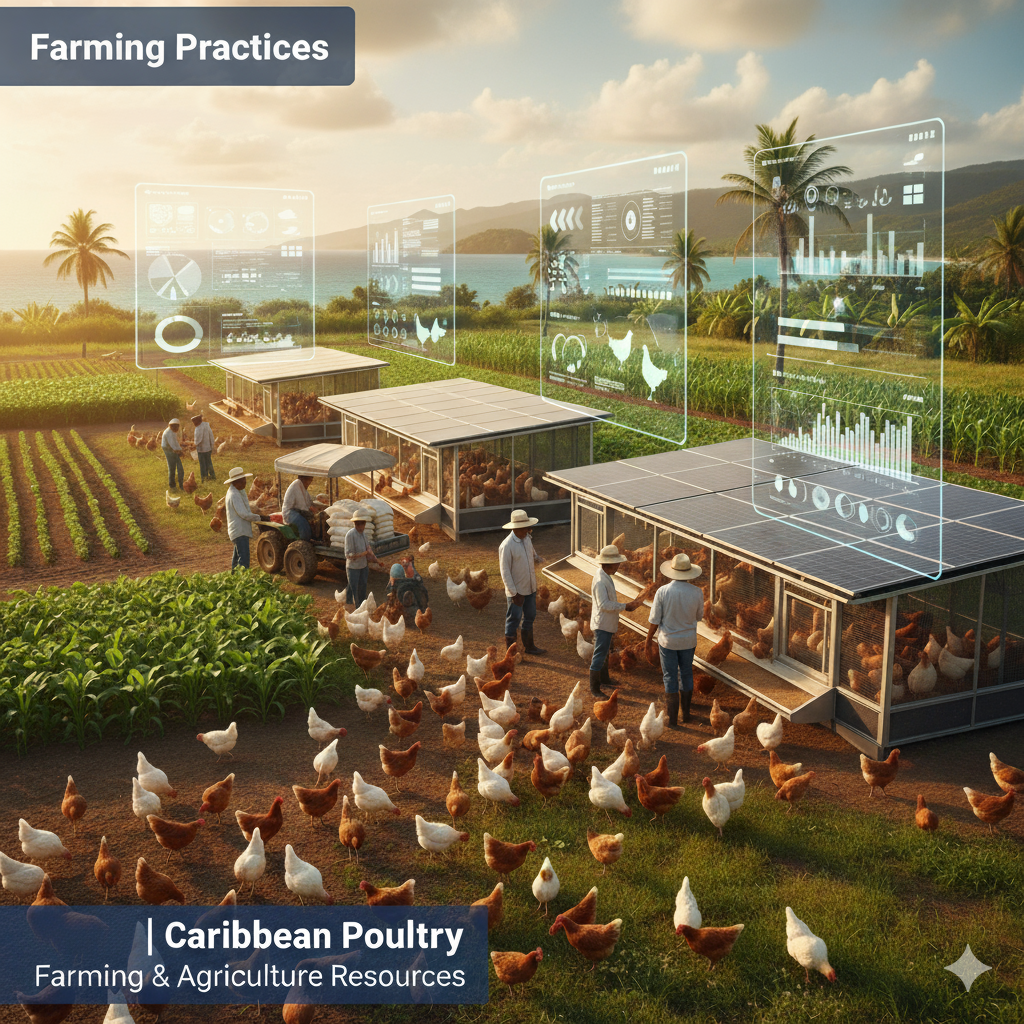Farming Practices

Farming Practices | Caribbean Poultry | Farming & Agriculture Resources
Poultry farming in the Caribbean has long been both a livelihood and a cultural tradition, shaping the way communities eat, trade, and sustain their economies. As global demand for poultry products grows, farming practices in the Caribbean continue to evolve, combining traditional knowledge with modern agricultural techniques. This balance of heritage and innovation ensures that poultry farming remains both sustainable and profitable while also respecting the natural environment of the region.
In the Caribbean, poultry farming practices differ depending on the size and focus of the farm. Smallholder farmers often raise chickens in backyard systems, providing fresh meat and eggs for family consumption or local markets. These farms use low-cost methods, such as foraging and natural feed supplements, to keep operations efficient. On the other hand, commercial poultry farms have adopted advanced systems that include controlled housing environments, automated feeding systems, and scientific breeding methods to increase productivity and meet the growing regional demand.
Biosecurity is one of the most critical aspects of modern poultry farming practices. In tropical climates like the Caribbean, diseases can spread rapidly due to high humidity and warm temperatures. Farmers have responded by implementing biosecure environments—limiting farm access, disinfecting facilities, and closely monitoring animal health. Vaccinations and veterinary support are also key components of disease management, ensuring flocks remain healthy and productive.
Sustainability is another central theme in Caribbean poultry farming. Many farms are turning to organic and eco-friendly approaches, such as integrating crop-livestock systems where poultry waste is repurposed as fertilizer for crops. This reduces dependency on synthetic chemicals and lowers operational costs while contributing to healthier soils. Solar-powered water pumps, rainwater harvesting systems, and energy-efficient housing designs are also being adopted to reduce environmental impact.
Feed management remains one of the greatest challenges in poultry farming, as imported feed is often costly. Caribbean farmers are increasingly exploring local alternatives such as cassava, sweet potatoes, and breadfruit as supplementary feed sources. These innovations reduce reliance on imported goods and help stabilize production costs. In some cases, farmers are also experimenting with insect protein sources, such as black soldier fly larvae, which provide high nutritional value and align with sustainable farming practices.
Animal welfare plays a growing role in Caribbean poultry farming. Consumers are becoming more conscious of how animals are raised, preferring free-range, cage-free, or organic poultry products. Farmers who adopt humane practices—such as giving chickens outdoor access, natural light, and space to roam—are often rewarded with higher prices and greater consumer trust.
Looking to the future, Caribbean poultry farming practices are likely to continue blending tradition with technology. Precision farming tools, data-driven health monitoring, and improved genetics will increase efficiency, while community-based farming initiatives will ensure that smallholders remain competitive. Ultimately, the success of poultry farming in the Caribbean lies in its ability to adapt to modern challenges while preserving the cultural and ecological roots that make the region unique.